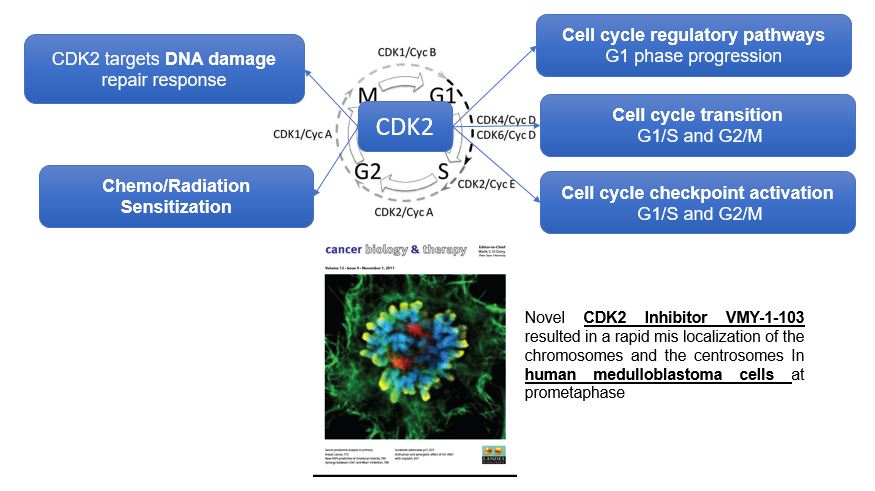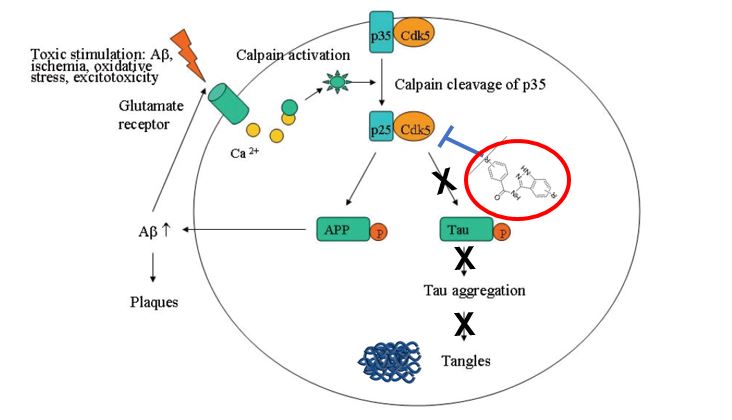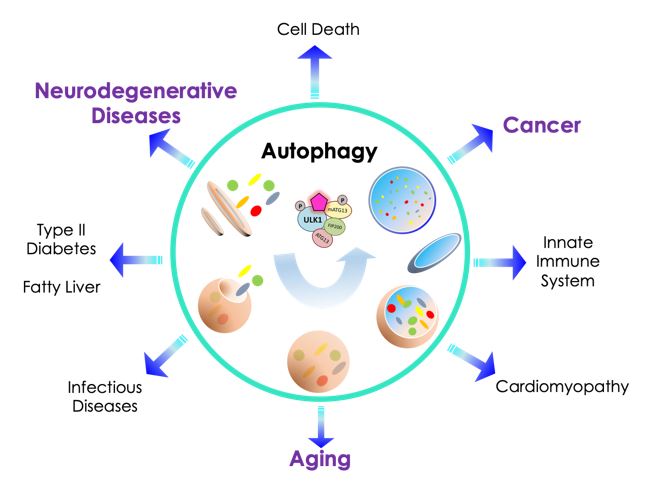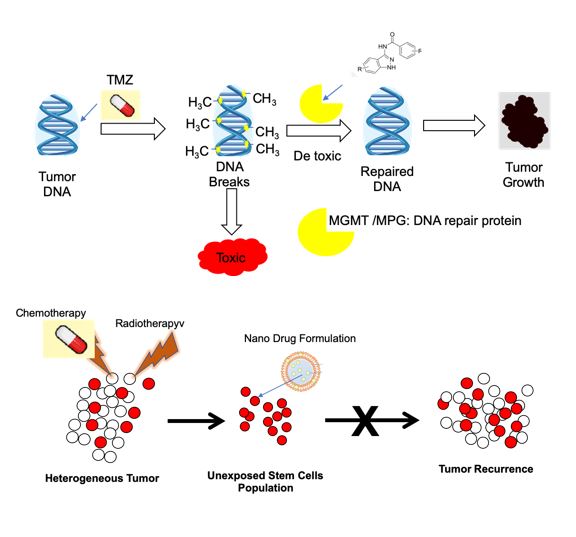Development of novel Cell Cycle Kinase Inhibitors (CDKi) for the treatment of cancer and neurodegenerative disease
Abnormal regulation of the cell’s life cycle causes uncontrolled proliferation and eventually leads to the development of cancer and other proliferative diseases. Drugs which inhibit cell life cycle checkpoint proteins, Cyclin Dependent Kinases (CDK), are considered a promising and immensely effective targeted therapy, as they target tumor cell formation and halt its progression.
This has lead to a rigorous pursuit of small molecule CDK inhibitors for therapeutic uses, and recent approvals of CDK4 and CDK6 inhibitors have inspired a resurgence in CDK research. However, targeting other CDKs based on their promising preclinical activity, particularly CDKs 1 and 2, has failed to yield similar results in clinical settings. Advances in stratifying patient populations and in CDK 1 and 2 drug design, offer a new hope for this therapeutic direction.
Cancer Disease Models: Medulloblastoma, Glioblastoma, Triple Negative Brest Cancer and Ovarian.

Cyclin Dependent Kinases and Alzheimer’s Disease
We are also focused on developing new drugs for Alzheimer’s Disease by targeting a neuron-specific cell cycle protein called CDK5/p25. Abnormal hyperphosphorylation of tau is the most deleterious step in neurofibrillary tangles (NFT) formation, making use of cyclin dependent kinase-5 (CDK5) inhibitors an attractive strategy in preventing beta-amyloid (Ab) accumulation. Many drugs have been developed to target Ab and NFTs directly, and all have failed in past few decades.
We are applying multi-disciplinary drug discovery and drug delivery approaches in developing these novel CDKi therapeutics for precision therapy.
Neurodegenerative Disease Model: Alzheimer’s Disease

Small molecule autophagy activators for the treatment of cancer and neurodegenerative diseases
Autophagy is a cellular process in which unwanted proteins and organelles are degraded and reused to promote cell health. Unfortunately, dysregulation of the autophagy mechanism may lead to cancer and progression of neurodegenerative diseases. This makes autophagy an attractive target for anti-cancer therapies. Both autophagy activation and inhibition can lead to cell death, depending on the tumor microenvironment. We are interested in developing small molecule activators of autophagy, that induce autophagy-mediated cell death in cancer cells, and induce removal of protein aggregates caused by neurodegeneration in the brain.
Cancer Disease Models: Triple Negative Brest Cancer and Glioblastoma.
Neurodegenerative Disease Model: Alzheimer’s and Aging.

Development of novel chemo and radio sensitizers for cancer therapy
Chemo and radiation treatments will often yield resistance at some point, due to activation of DNA damage repair proteins and unexposed stem cell populations. While locoregional control and survival benefits have been established, there is still much room for improvement both in terms of cancer control and normal tissue toxicity, i.e. the therapeutic ratio. Our collaborative investigators recently identified specific proteins responsible for chemo and radiation resistance in certain cancers. We are working with them to identify drug leads for those proteins through various drug discovery methods. We are also combining drug delivery methods with existing small molecule sensitizers for improving therapy while minimizing normal tissue toxicity.
Disease models: Head and Neck Cancer, Pediatric and Adult Brain Cancer.

Studying the Role of a4b2 nicotinic receptors in CNS disorders
Nicotine receptors are widely distributed throughout the central nervous system, expressed on CNS and non-CNS cells, where they are involved in a wide range of physiological responses such as anxiety, pain, depression, nicotine and alcohol seeking behavior, and cognitive function. The mammalian brain has nine different subunits of nicotinic receptors; among them, the α7 and α4β2 subtypes predominate in the CNS. We have developed highly selective, small molecule α4β2 nicotinic receptor desensitizers which showed promising results in reducing nicotine, alcohol, and methamphetamine intake in pre-dose animal models. We want to further study the efficacy of these molecules against other neurodegenerative diseases, neurodevelopmental disorders, and neuropathic pain.
Disease models: Depression, Alzheimer’s disease, Autism and schizophrenia.

